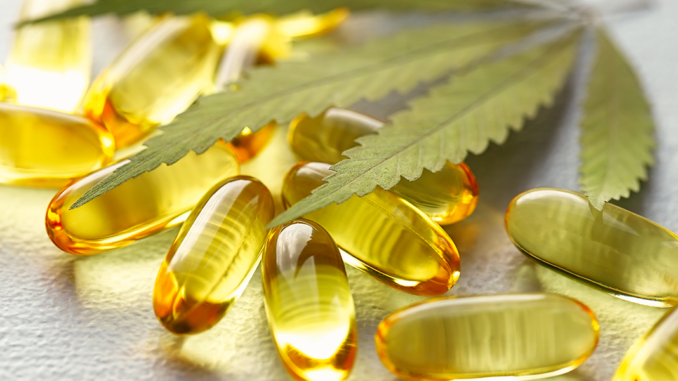
On Aug 12, the FDA formally rejected two New Dietary Ingredient (NDI) applications seeking to establish CBD as a lawful dietary supplement. Apparently, the fix was in from the start. The FDA never intended to approve the applications by Charlotte’s Web, a pioneer CBD brand, and Irwin Naturals, a legacy supplement company that has jumped into the CBD space.
Although millions of doses of CBD have been consumed in the United States, the FDA claims it has insufficient data to assess if there’s a dosage of CBD that’s safe for consumers. Irrespective of real or imagined safety concerns, it seems that the FDA was committed to delivering a predetermined thumbs-down verdict in keeping with the “exclusionary clause” of the 1994 Food Drug and Cosmetic Act, whereby supplements can’t contain pharmaceutical ingredients.
Although millions of doses of CBD have been consumed in the United States, the FDA says it has insufficient data to assess if there’s a dosage of CBD that’s safe for consumers.
In effect, the FDA equated the CBD in the unregulated market (isolates as well as full-spectrum hemp extracts) with the cannabidiol in Epidiolex, the FDA-approved pharmaceutical CBD (mixed with ethanol and sucralose, the artificial sweetener) that’s used to treat pediatric epilepsy. Ironically, invoking the exclusionary clause implies recognition on the FDA’s part that the CBD sold as supplements could also be therapeutically beneficial – given that the same ingredient is found in pharmaceutical CBD.
Out of deference to Pharma, the FDA has refused to provide a regulatory framework for CBD supplements, which technically are not legal but remain on the shelves because of a lack of federal enforcement. So now it will be up to Congress to clarify CBD’s status and craft a better policy for producers and consumers.
Debunking claims of liver toxicity
Recent rulings by the FDA rejecting NDI submissions from CBD brands cite concerns about a lack of safety data addressing liver toxicity. Fortunately, there’s a large scale clinical study underway to assess the safety and efficacy of the daily use of CBD supplements particularly with respect to liver health.
Conducted by the Denver-based medical research firm ValidCare, the National CBD Safety study has already completed trials involving more than 1000 volunteers. Thus far, the preliminary results are very positive. Contrary to FDA warnings, the ValidCare findings show “no clinical evidence of liver disease in any of the participants.”
Project CBD has helped recruit subjects for the ValidCare study. To increase the confidence level of the data for liver safety, Project CBD is once again seeking volunteers who are regular users of CBD products to participate in ValidCare’s 30-day clinical observational trial. This will help to advance our understanding of the science and safety of CBD.
The FDA’s latest rejection of CBD as a dietary supplement underscores the importance of this research effort. Seventeen CBD brands are supporting ValidCare’s liver study, and we hope you will, as well, by volunteering to participate as test subjects. The final results will be disclosed by the end of the year. Peer-reviewed safety data will be provided to members of Congress as they consider whether to override the FDA’s obstructionist CBD policy.

Volunteers needed
All participants in the ValidCare study will receive free study product for the trial – either tinctures or soft gels. Those who complete the entire month-long study and provide a blood sample will also receive a $100 gift card. To learn more about volunteering and to submit a formal application to participate, contact ValidCare, the medical research company that is conducting this study. You will be required to use an app for 30 days to document your use of a hemp-derived CBD product, how it affects you, if you experience any side effects, and any other relevant feedback. After 30 days, you will be expected to provide a blood sample for liver test functioning at a nearby Quest diagnostic lab. (Please note that labs in NY, NJ, and RI have different regulations on drawing blood samples, so residents of these states will need to go to CT, MA, or PA to draw blood for a liver test.)
To recap, all volunteers who complete the 30-day trial will receive:
A free supply of CBD tincture or gel caps for the duration of the study, and possibly longer
Visa gift card ($100)
An opportunity to advance our knowledge of the safety and efficacy of CBD.
For more information about this important study, contact ValidCare.
Thanks from Project CBD!
APPLY HERE
Copyright, Project CBD. May not be reprinted without permission.



Be the first to comment